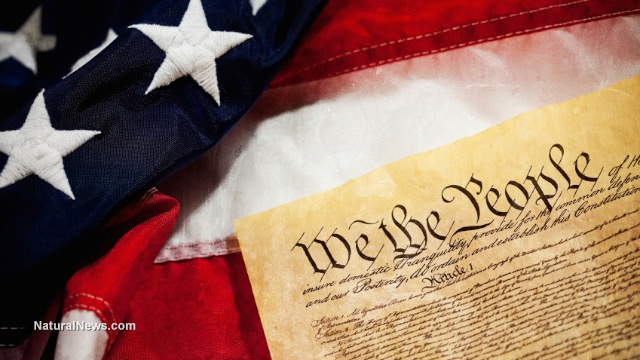
Hundreds of people are trying to get their money back from the Federal Bureau of Investigation (FBI) after the agency raided and seized the contents of safe deposit boxes in Beverly Hills, California but failed to produce evidence of any criminal wrongdoing.
Back in March, the FBI raided the safe deposit boxes of over 800 people that they rented from U.S. Private Vaults, a store at a strip mall in Beverly Hills, California. The FBI then confiscated all the contents of the safe deposit boxes, which amounts to around $86 million in cash and other valuables, such as jewelry.
The FBI claims criminals were using the safe deposit boxes to store loot. But the agency has not provided any evidence that the vast majority of individuals who rented them had done anything wrong. Prosecutors have only been able to point out 11 individuals with pending charges or past criminal convictions. (Related: Disband the FBI.)
One of the innocent people whose belongings were stolen by the FBI was Joseph Ruiz, an unemployed chef who stored $57,000 in the safe deposit box.
Ruiz went to court to get his money back, and a judge ordered the FBI to tell Ruiz why the agency was trying to confiscate his money. An FBI agent responded by claiming there was "probable cause" that Ruiz's money came from drug trafficking.
The FBI agent alleged that Ruiz's income was far too low for him to have that much money. The agent even tried to claim that Ruiz was an unlicensed marijuana dealer because he had a side business selling bongs made from old liquor bottles. The agent also said a dog had smelled unspecified drugs on Ruiz's cash.
In response, Ruiz produced detailed financial records showing the source of his life savings was legitimate. When faced with this evidence, the FBI dropped its false accusation and returned his money.
"It was a complete violation of my privacy," said Ruiz. "They tried to discredit my character."
About 300 people who own safe deposit boxes in U.S. Private Vaults are contesting the illegal confiscation of their goods. Ruiz and 65 others have filed court claims saying the raid and seizure of assets were unconstitutional.
One class-action suit involving Ruiz and six other safe deposit box owners is seeking the destruction of all records generated by the raid. The plaintiffs see the case as an alarming sign of law enforcement's efforts to "criminalize financial privacy."
"The government's theory is that having cash makes you a presumptive criminal, and I think that every American should be worried about that," said Robert E. Johnson, a lawyer representing Ruiz and the six others.
"They pulled a bank heist in broad daylight," said Ruiz. "They didn't even apologize."
Other lawyers representing other box holders claim the FBI is attempting to "money grab" to obtain large sums of cash for the Department of Justice.
FBI has very little evidence to support its seizure of assets
Apart from the 11 individuals with pending charges or histories of criminal convictions, the FBI has produced little evidence to justify the seizure of the assets.
The federal agents said the use of rubber bands and other normal methods of organizing and storing cash in safe deposit boxes are indications of money laundering or drug trafficking. This claim has not been supported by any evidence.
The FBI also pointed to the fact that their dogs were alerted to the scent of narcotics on most of the seized cash. But the FBI also said it deposited all of the money it seized in a bank, making it impossible to verify the agency's claim that the dogs came into contact with narcotics.
"You actually don't know anything until that currency is run through a lab," said Mary Cablk, a scientist from Nevada and an expert witness on drug dogs. Cablk pointed out that a dog alerted to drug residue on cash "might be complete bunk" or "might be valid."
The only other evidence the FBI has to justify its illegal seizure of assets is that U.S. Private Vaults was indicted back in February for allegedly conspiring with customers to deal drugs, launder money and structure transactions to avoid government detection. This case remains dormant, and no individuals have been charged.
The prosecutors allege U.S. Private Vaults deliberately marketed itself to criminals by emphasizing the ability of the business to rent out safe deposit boxes anonymously.
The owner of U.S. Private Vaults, Michael Poliak, also allegedly made money from illegal marijuana sales and healthcare fraud.
Learn more about the blatantly illegal actions conducted by the FBI at FBICorruption.news.
Sources include:
Please contact us for more information.

















